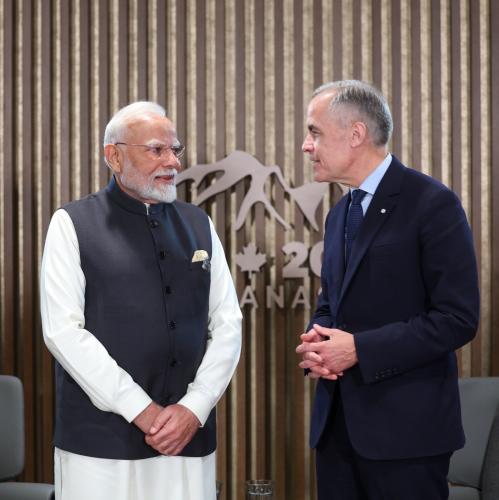By Prashant Shah
Ratan Tata, an emblem of resilience and vision in the Indian industrial landscape, is often regarded as a man of the century due to his transformative contributions to business, philanthropy, and social development. Born on December 28, 1937, into one of India’s most prestigious families, Tata's lineage is intertwined with the founding of the Tata Group, one of the country's largest and most respected conglomerates. Yet, despite this legacy, Ratan Tata's journey has been marked by his determination to carve out his own identity and influence.
Tata's early education took place in India and later in the United States, where he attended Cornell University and earned a degree in architecture. This foundation in design and engineering would serve him well in his later business ventures. Upon joining the Tata Group in 1962, he started as a trainee at Tata Steel, where he gained hands-on experience and an understanding of the operational complexities of running a large organization. His ascent within the company was not merely a product of his family name but a testament to his capability and dedication. By 1991, he was appointed the chairman of the Tata Group, a position he held until his retirement in 2012.
Under Ratan Tata's stewardship, the Tata Group underwent significant transformations. He spearheaded a strategic shift that diversified the group’s portfolio, leading to the acquisition of several international companies. One of his most notable achievements was the acquisition of Corus Group, a British steel company, in 2007. This move not only expanded Tata Steel's footprint but also demonstrated Tata’s ambition to position the group as a global player. His vision extended beyond mere business expansion; he sought to redefine what it meant to be a corporate leader in the modern age.
Ratan Tata's leadership style is often characterized by humility, integrity, and a commitment to ethical practices. He believed in the importance of corporate governance and transparency, setting a standard for other businesses to follow. His approach to leadership emphasized the value of human capital, advocating for the welfare and development of employees. Tata instituted various programs aimed at enhancing employee satisfaction and promoting a culture of innovation. This human-centric approach fostered loyalty and dedication among the workforce, contributing to the group’s long-term success.
In addition to his business acumen, Ratan Tata is widely recognized for his philanthropic efforts. The Tata Group has a long history of contributing to social causes, and Tata has been a strong advocate for corporate social responsibility (CSR). He firmly believed that businesses should play a pivotal role in the communities they serve. Under his leadership, the group invested significantly in healthcare, education, and rural development, aiming to uplift marginalized sections of society. Initiatives like the Tata Trusts, which focus on various social issues, have made a profound impact on countless lives across India.
One of the hallmark projects during his tenure was the introduction of the Tata Nano, a small car designed to be affordable for the masses. This ambitious endeavor aimed to provide safe and accessible transportation for families with limited financial means. While the launch faced several challenges, including safety concerns and production issues, the Nano epitomized Tata’s commitment to innovation and societal benefit. It represented a bold step in making personal mobility attainable for millions, reinforcing Tata’s legacy of prioritizing the needs of the common man.
Ratan Tata's influence extends beyond business and philanthropy; he is also a vocal advocate for various social and economic issues. His insights on entrepreneurship, education, and technological advancement have positioned him as a thought leader not only in India but globally. He has encouraged the younger generation to embrace innovation and take calculated risks, reflecting his belief in the potential of youth to drive change. Through various platforms, including lectures and mentorship programs, Tata has inspired countless aspiring entrepreneurs, instilling in them the values of perseverance and ethical leadership.
Furthermore, Ratan Tata's vision has been integral to the growth of India's startup ecosystem. By investing in numerous startups through the Tata Group's venture capital arm, he has provided crucial support to emerging businesses. His belief in innovation and technology has helped foster a vibrant entrepreneurial culture, contributing to India’s reputation as a hub for innovation and creativity. Tata’s willingness to embrace change and adapt to new market realities exemplifies his forward-thinking mindset, crucial for navigating the complexities of today’s business environment.
Despite his numerous accolades and achievements, Ratan Tata remains grounded and approachable. His humility is often reflected in his interactions with employees and the public. He has a unique ability to connect with people from all walks of life, understanding their concerns and aspirations. This innate empathy has allowed him to build strong relationships and trust within the communities he serves, further enhancing the Tata Group’s reputation as a socially responsible corporation.
As he stepped down as chairman of the Tata Group, Ratan Tata left behind a legacy that extends far beyond financial success. His vision of a business model rooted in ethical practices, social responsibility, and community development continues to inspire leaders across the globe. The values he instilled within the Tata Group remain at the forefront of its operations, ensuring that the conglomerate stays true to its founding principles while adapting to the demands of a rapidly changing world.
In recognition of his extraordinary contributions, Ratan Tata has received numerous awards and honors, both in India and internationally. He has been awarded the Padma Bhushan, one of India's highest civilian honors, and has been recognized by various organizations for his outstanding leadership and philanthropic efforts. These accolades are a testament not only to his business acumen but also to his unwavering commitment to making a positive difference in society.
Ratan Tata’s story is one of resilience, vision, and an unyielding dedication to societal betterment. His ability to navigate challenges while maintaining a strong ethical compass sets him apart as a true leader of our times. As the world grapples with pressing issues such as poverty, inequality, and climate change, Tata's philosophy of blending business with purpose serves as a guiding light. His legacy will undoubtedly continue to shape the future of business and inspire generations to come, solidifying his status as a man of the century. In a world that often prioritizes profit over purpose, Ratan Tata stands as a beacon of hope, demonstrating that it is possible to achieve success while making a meaningful impact on society.













